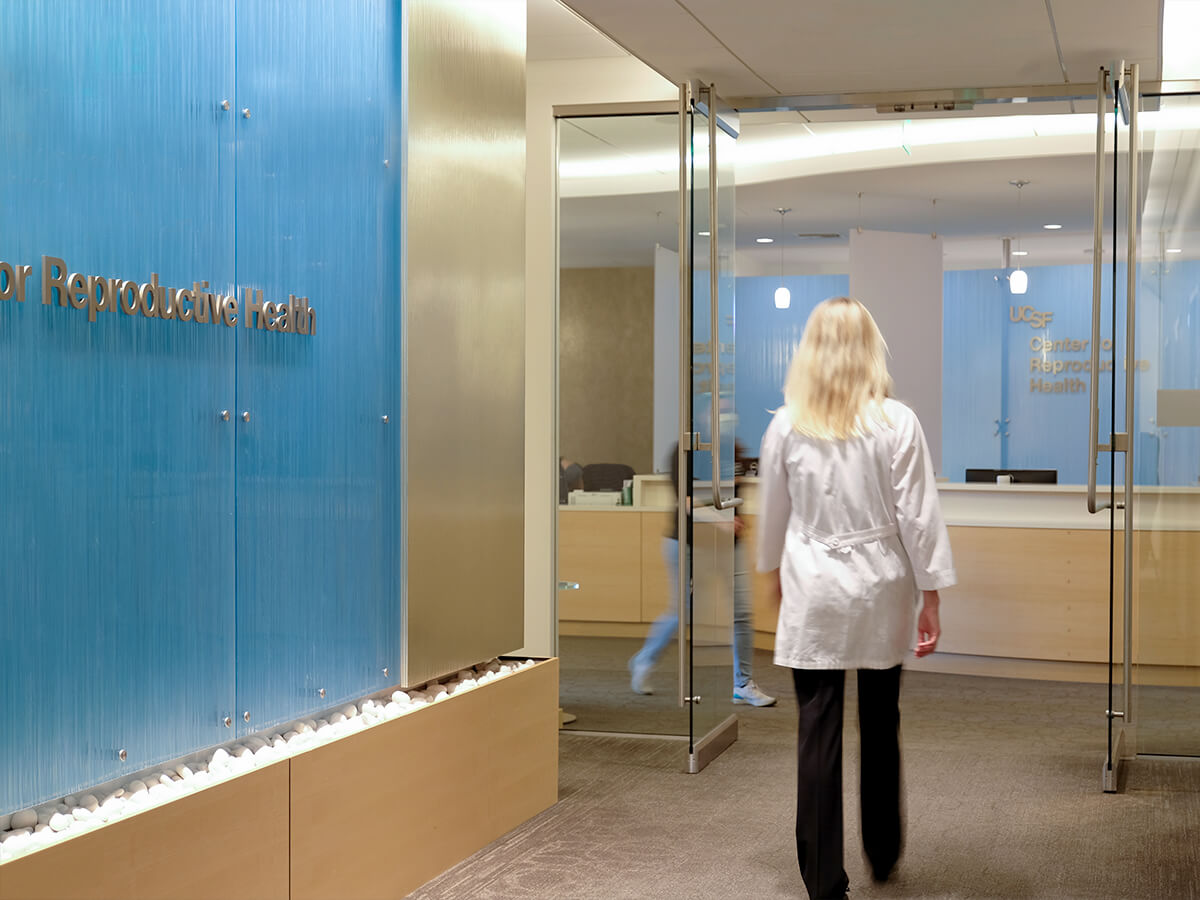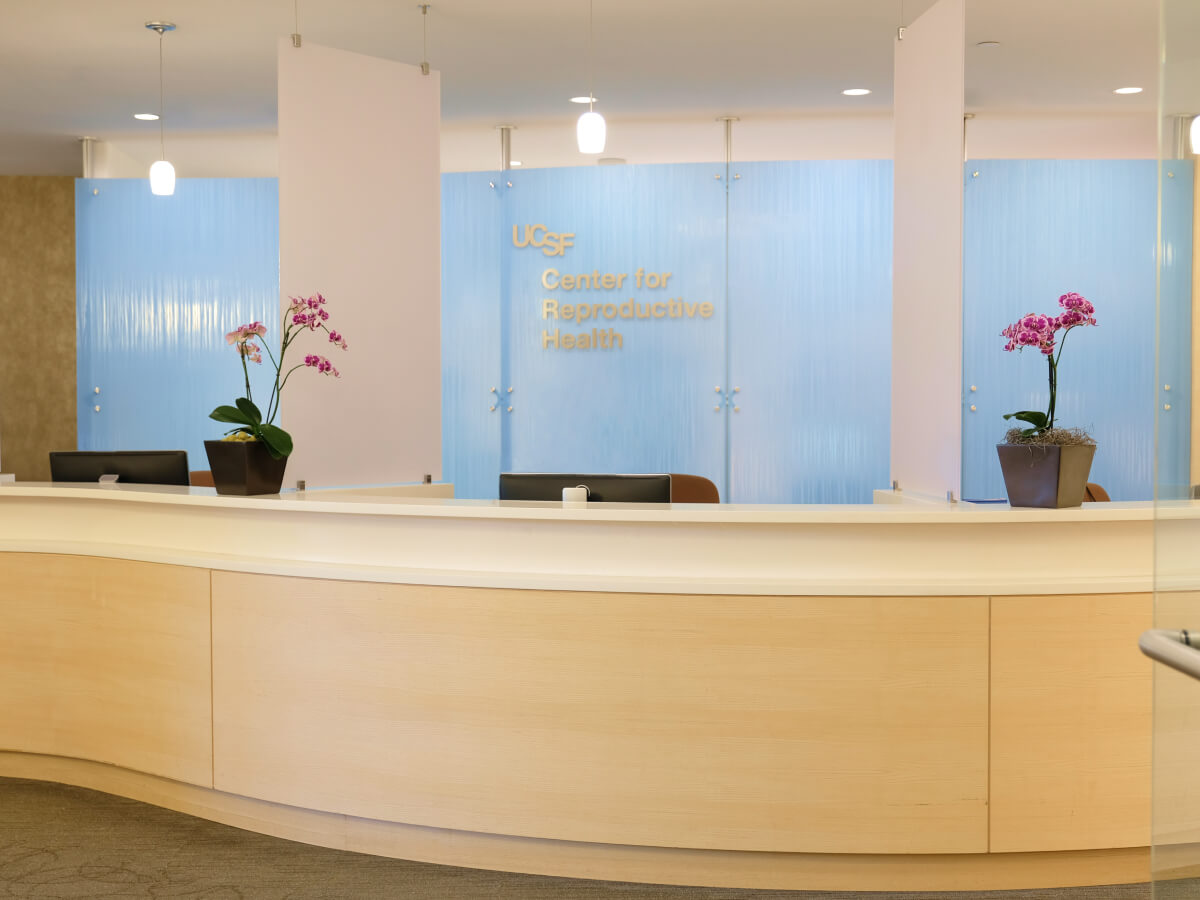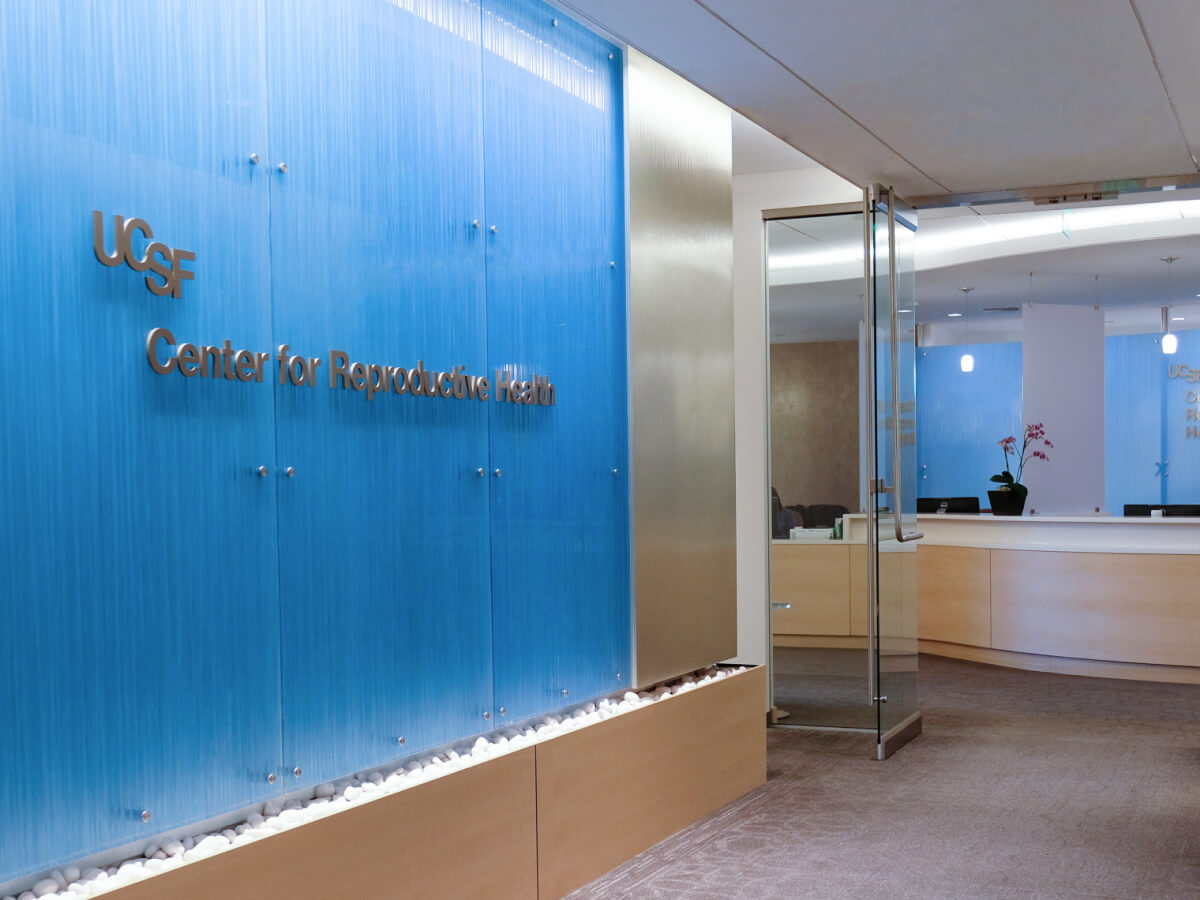Visit us in San Francisco
Academic standards. Pioneering research. Personalized care. Start your journey at the UCSF Center for Reproductive Health, located in Northern California's San Francisco Bay Area.
We are currently booking new patient appointments. Please fill out our form to get started.
UCSF has a strong commitment to the principles of diversity, equality and inclusivity.
We also have decades of experience caring for the reproductive needs of the LGBTQ+ community. The UCSF Center for Reproductive Health offers a range of fertility services for LGBTQ+ people. Services offered include: sperm, oocyte (egg), embryo, or ovarian tissue cryopreservation (freezing), assisted reproductive technologies for family-building, including Intrauterine Inseminations (IUI) and In Vitro Fertilization (IVF), as well as sperm donation, egg donation and gestational surrogacy. We also partner with UCSF’s pediatric and adult endocrinologists to address transgender patients specifically, and are one of the only centers in the Bay Area with a program specializing in transgender fertility care.
Academic standards. Pioneering research. Personalized care. Start your journey at the UCSF Center for Reproductive Health, located in Northern California's San Francisco Bay Area.
Academic standards. Pioneering research. Personalized care. Start your journey at the UCSF Center for Reproductive Health, located in Northern California's San Francisco Bay Area.






